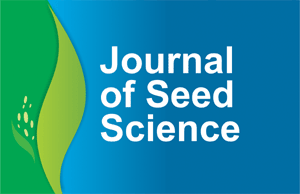Abstract:
Growth-promoting bacteria in agriculture have become an important tool to improve crop performance and productivity in the face of climate change and deteriorating soil conditions. Bacillus simplex is a recently developed active ingredient for the growth promotion of corn and soybean in Brazil. This study compared three methods to quantify B. simplex colony-forming units in the inoculant product and evaluated the treatment effects of four different concentrations of a B. simplex-based inoculant on corn and soybean root and shoot dry weight, the Normalized Difference Vegetation Index (NDVI), and yield. Field trials were performed at four different locations for each crop, in Mato Grosso do Sul and Paraná for corn, and in Mato Grosso do Sul, Minas Gerais, and Paraná for soybean. The performance of B. simplex was compared to an Azospirillum brasilense-based inoculant, a polymer seed treatment, and untreated controls. The results showed that the official MAPA method for quantifying microbes in inoculants recovered the highest number of B. simplex colonies. However, all three evaluated quantification methods recovered over 100 million colony-forming units per mL (108 CFU.mL-1). The field results showed that the B. simplex inoculant generally increased corn and soybean yields as much or more as the A. brasilense product and that the polymer seed treatment had no impact on yield. The treatment effect on root and shoot weight, and NDVI, was inconsistent. This research shows that B. simplex is quantifiable with three different methods and that it can improve yield in corn and soy. The Bacillus simplex-based inoculant has the potential to become widely used in Brazil.
Index terms:
bioinputs; biological product; inoculant; plant growth-promoting; seed treatment.

 Thumbnail
Thumbnail
